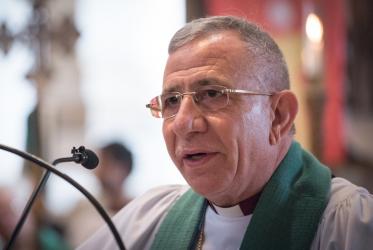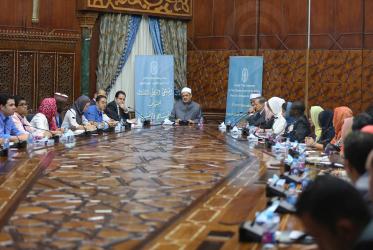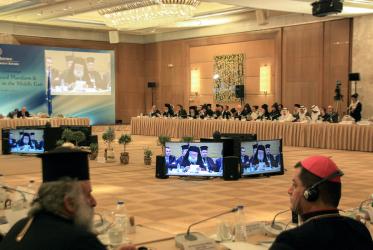Displaying 61 - 80 of 93
22 February 2017
In Syria and Iraq, minorities must come out of the darkness
28 November 2016
Grand Imam calls for collaboration against violence and poverty
06 October 2016
WCC general secretary reflects on peace in Palestine and Israel
20 September 2016
WCC set to observe World Week for Peace in Palestine and Israel
16 September 2016
Seminar will address youth engagement, religion and violence
19 August 2016
Facilitating peace with passion
26 July 2016
WCC/UN conference calls for coordinated action on refugee crisis
20 January 2016
WCC strongly condemned terror attacks
14 November 2015
Beirut bombings stir churches’ and WCC condemnations
13 November 2015
International conference addresses challenges in the Middle East
22 October 2015
WCC urges responsibility for and support to the refugees in Europe
04 September 2015










